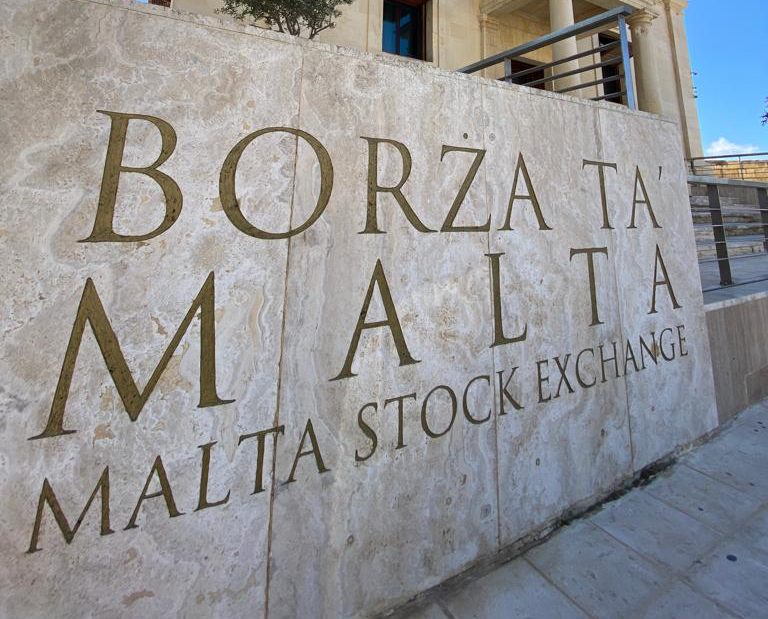In my recent articles I clearly highlighted the very weak investor sentiment across the local capital market. I mentioned the need for companies to devise detailed communication strategies to assist the investing community to understand the performance and strategic objectives of each company to help assist in the investment decision-making process by retail and institutional investors. Moreover, companies need to replicate strategies of several overseas companies and activate corporate actions to improve shareholder returns. There are numerous examples of these strategic overhauls taking place almost on a daily basis across the international capital markets.
A combination of these two strategies could inject some renewed appetite for equities listed on the Malta Stock Exchange which is very much lacking. Separately, policymakers need to study various reforms taking place across international capital markets to understand whether some of these could be introduced in Malta in order to generate an additional inflow of funds into the market from both retail and more importantly also institutional investors, both locally-based and also international ones if at all possible given the structure and set-up of the local capital market.
Activity on the Malta Stock Exchange can be measured in two ways – via the number of new issues (both equity and bond) across the primary market as well as trading activity across the secondary market. In terms of the number of new issues taking place, and the take-up of such offerings by retail and institutional investors, new bond issuance has maintained a reasonable momentum despite the interest rate hikes by the European Central Bank since late 2022. Most new bond issues are generally fully subscribed. This may not be surprising given the sheer amount of idle liquidity held by retail investors across the banking system and the realisation by investors that in the current interest rate environment, a decent level of income can be generated by placing idle monies across the capital market (even for the short-term using Treasury management instruments).
On the other hand, the market for new share offerings remains very weak indeed. With the exception of the highly successful share issue by APS Bank plc in the first half of 2022 (which was thought to have been the right catalyst for a definitive renewed enthusiasm for Maltese equities), most other newcomers in recent years were met by weak demand from the investing public and a very weak response in the secondary market once their shares were listed on the Borza. Prior to the APS issue, another huge success story was the Initial Public Offering of PG plc in 2017. Unfortunately, the enthusiasm seen for PG and APS was not repeated in other share offerings that took place since then.
It is a known fact that Maltese retail investors always tended to favour bonds over shares but the appetite for equity has diminished remarkably over recent years. This is evident from the trading activity on the secondary market with last year’s partial recovery to €58 million (from just under €90 million in 2019) largely boosted by the sizeable trades in Tigne Mall plc. Other than that, the worrying trend over the past four years with very weak trading activity compared to the reassuring volumes averaging €85 million annually between 2015 and 2019 seems to be difficult to achieve once again.
These statistics and the various factors that led to this situation have rarely been highlighted by other industry observers or policymakers in public fora. It is important for the equity market to function effectively in order to instigate more companies to list and also help existing issuers to raise additional funds for further expansion such as last year’s recent rights issue of Lombard Bank Malta plc and the current offering of Malita Investments plc. After all, additional fund-raising initiatives is one of the reasons for a company to have its shares listed on a stock exchange.

However, we first need to recognise the problems at hand before we can address the measures needed to achieve a more reasonable level of trading activity that will encourage added participation.
The virtual absence of an active secondary market prohibiting even retail or high net worth investors to dispose of their shares in an orderly and timely manner, will not attract new inflows into the market from retail investors as well as from the all-important active participation by institutional investors. The latter type of investors correctly view the level of trading activity as a hugely important factor when taking into consideration an investment other than company-specific fundamentals. Internationally, it is the institutional investors as well as company insiders (directors, senior management, etc) together with share buybacks that account for a high proportion of activity on the secondary market. For a variety of reasons, Malta’s equity market currently lacks such participation from these type of investors. One cannot expect retail investors to provide the necessary flow of funds to create a healthy and active secondary market.
This low activity over the past four years has also created an evident share overhang across various companies which is resulting in share prices of certain companies not reacting to evident progress of improved financial performances. In some cases, company officials share their concerns that the capital market does not reward them for the hard work and progress achieved in fulfilling their objectives.
Although it is in everyone’s interest for the number of equities listed on the MSE to continue to grow, this is difficult to achieve in the current circumstances. Possibly, what is required at this stage, is for companies in certain instances to question the original rationale and advantage of a listing. In some cases, companies may find that as circumstances have changed, a delisting may be the best outcome. This has already happened in Malta over the years with the delistings of a few companies (such as 6pm Holdings plc and Crimsonwing plc) and is a process that also happens internationally for a variety of reasons. A recent example is currently taking place in Italy with a voluntary tender offer launched by the luxury group Tod’s after a private equity firm backed by the world’s largest luxury group LVMH is seeking to acquire shares of all minority shareholders.
A shake-up is needed on various fronts to bring the Maltese capital market out of this dire situation. Hopefully, with a number of reforms and concerted efforts by various policy makers and market participants, a stronger capital market will emerge for the benefit of the wider economy.
Read more of Mr Rizzo’s insights at Rizzo Farrugia (Stockbrokers).
The article contains public information only and is published solely for informational purposes. It should not be construed as a solicitation or an offer to buy or sell any securities or related financial instruments. No representation or warranty, either expressed or implied, is provided in relation to the accuracy, completeness or reliability of the information contained herein, nor is it intended to be a complete statement or summary of the securities, markets or developments referred to in this article. Rizzo, Farrugia & Co. (Stockbrokers) Ltd (“Rizzo Farrugia”) is under no obligation to update or keep current the information contained herein. Since the buying and selling of securities by any person is dependent on that person’s financial situation and an assessment of the suitability and appropriateness of the proposed transaction, no person should act upon any recommendation in this article without first obtaining investment advice. Rizzo Farrugia, its directors, the author of this article, other employees or clients may have or have had interests in the securities referred to herein and may at any time make purchases and/or sales in them as principal or agent. Furthermore, Rizzo Farrugia may have or have had a relationship with or may provide or has provided other services of a corporate nature to companies herein mentioned. Stock markets are volatile and subject to fluctuations which cannot be reasonably foreseen. Past performance is not necessarily indicative of future results. Foreign currency rates of exchange may adversely affect the value, price or income of any security mentioned in this article. Neither Rizzo Farrugia, nor any of its directors or employees accepts any liability for any loss or damage arising out of the use of all or any part of this article.
Reinventing the single market: Strategic vision and bold reforms for Malta and Europe
Proposed reforms present significant opportunities and formidable challenges for our small island nation
The equity market in pre-COVID times
Investor sentiment has evidently failed to recover from the series of shocks since the start of 2020
Interest rate divergence ahead?
Inflation is falling faster than forecast in Europe, while exceeding expectations in the US






